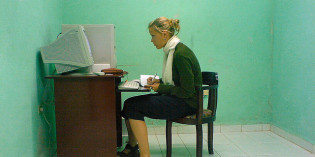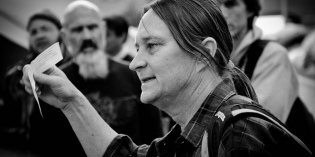Tag: Rebecca Rumbul

Evidence from Scotland and Wales: representatives elected via party lists are less likely to reply to constituents – but we should be careful about the conclusions we draw
Websites such as WriteToThem.com make it simple for constituents to contact their elected representatives, but how responsive are politicians to these communications? And does the system by which they are elected shape their responses? Research by Alex Parsons and Rebecca Rumbul shows that under the UK’s Additional Member Systems, constituency representatives are more likely to reply than those elected via party list. This raises further research questions about the subjects they reply about and different priorities for representatives under this system.

Citizens worldwide are embracing civic technology but the profile of users varies markedly between countries
Technologies aimed at giving citizens the power to hold their governments to account are becoming increasingly common in both developing and affluent countries a new report published by mySociety explores who uses civic technologies and why across four countries, and finds that there are significant differences between users in the US and UK compared to […]

The representation of women in elected positions in Wales is not mirrored by the number of women giving evidence
Wales has made more progress on gender equality in its elected bodies than Westminster or the other devolved governments. However, Rebecca Rumbul’s research indicates that the number of non-elected women giving evidence to committees in the Welsh National Assembly is much lower, and in one third of the cases all the participants were male. She […]

The best of Democratic Audit’s 2014 coverage of democracy’s technological advance
Is the future of democracy digital? In 2014, Democratic Audit UK carried numerous pieces of analysis, research, and argument concerning the interplay between technology, politics, parties, and representation, with the best appearing below in the latest of our 2014 round-ups. Similar PostsSocial media may have the potential to truly enhance our democracy, but there is […]

In the digital era, political activism can be individual as well as collective
The internet has changed society in numerous different ways, and with it has influenced the nature of political activism. Rebecca Rumbul argues that this can entail a shift from collective action along traditional participatory lines, to individual action, with web users able to act alone on the issues that interest and motivate them. Ponder briefly […]



 Democratic Audit's core funding is provided by the Joseph Rowntree Charitable Trust. Additional funding is provided by the London School of Economics.
Democratic Audit's core funding is provided by the Joseph Rowntree Charitable Trust. Additional funding is provided by the London School of Economics.